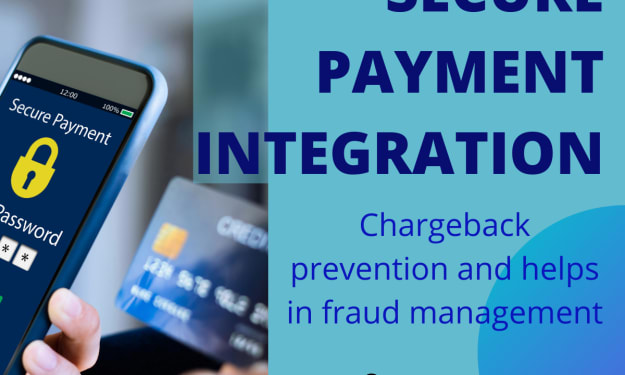
A digital wallet is an electronic device that allows you to receive, spend and transfer money in the form of electronic currency. Most people have their salaries credited into their bank accounts through direct deposit to access what they need electronically.
Digital wallets are defined by how secure you want your transactions to be. Security levels vary from something as simple as using Google Wallet on your Android phone or using PayPal for online payments up to full-featured programs like Apple Pay or Android Pay featuring security features such as one-time passcodes sent via SMS when making purchases at stores with participating merchants.
What countries accept this technology?
The number of digital wallets has grown immensely since its initial launch in 2009/2010. Most commonly, digital wallets are accepted through online retailers and some brick-and-mortar stores.
Banks worldwide have started to adopt this new technology as well, with many international companies such as Barclays and Goldman Sachs backing these new currencies. Northern Europe has been quickly adopting this technology into their banks, especially Sweden, accepting cryptocurrency transactions at most of their bank locations.
Digital wallet use cases:
Performing cross-border payments from any digital wallet to several different wallets domestically or internationally
Paying for items online without having to enter banking information on websites or worrying about security issues when giving out payment card numbers over the internet
Not having to worry about fluctuating currency rates when spending money on foreign soil
How to use a digital wallet:
1) Visit your bank location and open an account with them if you do not already have one. You will need some form of identification such as a passport or photo ID to make this step possible.
Some banks may allow you to make small purchases without holding on to the account; however, most implement specific restrictions to set up small purchases per day for security purposes.
2) Once your account is opened, you must deposit money into your new account. You can also choose to add money into your digital wallet by using cash at ATMs or transferring directly from your current bank accounts (if available).
3) Now that deposits are made, it is time to choose a digital wallet. You can download a popular app such as Google Wallet or use an online website that offers this form of electronic banking, such as PayPal. Many payment apps exist for both iOS and Android devices; however, most offer similar features.
4) Once you have downloaded your desired application, select the option “wallet” and set up your account by giving your name and verifying your identity with either a passport scan or driver’s license scan, depending on the service you used to create the account. This will protect both parties involved in any transaction between each other from fraud and theft of money.
5) A new feature has been added recently, allowing users to tie their personal credit card into their digital wallet, allowing them to spend money from their digital wallet directly onto their personal credit card. This is a safety measure in case any one of the cards gets lost or stolen, so you do not have to worry about fraudulent charges if this occurs.
What are some benefits and drawbacks?
The benefits of using a digital wallet far outweigh the negatives. Many companies offer free services, such as PayPal who has been around for several years and implements all security features available on the market today. We feel that we will start seeing more banks adopting this technology over time, making it very convenient when traveling abroad or domestically without worrying about foreign transaction fees (if your bank uses them) or fluctuating currency rates while shopping overseas during vacation times.
One drawback associated with this technology is that it can be a security risk if their phone gets lost or stolen. This means the digital wallet on your phone will need to be deactivated, and you cannot spend any money from the wallets unless you have access to your digital device. Another drawback would be mobile advertisement pop-ups which can sometimes become annoying while shopping online. However, this depends on the individual using these services, and not all companies implement this into their applications.
What sets them apart from other technologies?
The most notable difference with digital wallets is that they exist purely in an electronic form instead of physical cash or credit cards. Digital wallets offer a higher level of convenience when making transactions over long distances without worrying about sending funds through mail or going through lengthy processes of opening accounts with companies in another country.
Another advantage would be that you cannot overspend your total balance within a digital wallet. This means that once you have reached the maximum, you can spend a given amount of time. This account will stop allowing transactions until a specific date or amount has been restored back into your wallet. In addition, most payment apps offer device security features such as touch ID verification when making purchases on certain websites, much like how it works when making purchases through iTunes from an Apple product.
What laws and regulations govern them?
Digital wallets fall under many international rules and regulations when it comes to electronic banking. However, there are not yet any local laws dictating how they should work in Australia. However, they are subject to their service providers’ overall laws and regulations, which is why it is important to make sure you read through your specific service provider’s terms of use before signing up.
This means that each payment application will have different terms depending on where it operates worldwide; however, they have many similarities. For example, PayPal adheres to rules by the United States’ Financial Crimes Enforcement Network (FinCEN), which requires consumers to be given clear information about transactions with digital wallets so they can understand how much money they are spending in real-time.
What opportunities exist for using these technologies?
The digital wallet makes life easier when traveling because it reduces transaction fees associated with exchanging currencies and allows users to keep track of transactions in real-time. This means you can monitor all your expenses and plan accordingly for trips without worrying about losing expensive credit cards or cash. If something should happen, most digital wallet apps offer password protection and device tracking options if it becomes lost or stolen.
Another advantage is that digital wallets are accepted worldwide at major retailers such as Wal-Mart, Target, Best Buy, etc. This allows ex-pats who live overseas to purchase products domestically with ease while maintaining their normal spending habits back home instead of having to change their lifestyle due to their new country’s currency value fluctuations.
It also makes online shopping much easier through its global presence on most e- applications because you do not have to worry about switching currencies or paying conversion fees when making international purchases with your digital wallet.
Contact us at
(+44) 0 (800) 887 0291
Follow PayStudio to get daily information about payment gateway, fintech industry, gaming industry, forex and many more.
About the Creator
Arti Maurya
I am a MBA in Marketing currently working as a Marketing Associate in PayStudio. That is Payment Gateway Software provider across the globe based out in UK.






Comments (2)
Hi. This blog about Wallet as a Service has truly opened my eyes to the next revolution in e-commerce. As a curious reader intrigued by the ever-evolving world of digital payments, I found the insights presented here to be thought-provoking and eye-opening. The blog's exploration of Wallet as a Service and its potential in transforming the e-commerce landscape has left me excited about the possibilities of seamless and secure transactions. The in-depth analysis of how WaaS streamlines customer experiences, eliminates payment complexities, and enhances data security has reassured me about the future of online shopping. If you're eager to stay ahead in the realm of digital payments and e-commerce, this blog https://www.eliftech.com/insights/wallet-as-a-service-the-next-digital-payment-revolution-in-ecommerce/ is a must-read guide to the next big thing in the fintech world.
Digital wallets are widely accepted in many countries around the world. While the level of adoption may vary, the following countries have shown significant acceptance and integration of digital wallet technology: Sweden: Sweden is known for its advanced digital payment infrastructure. It has embraced digital wallets and has seen widespread adoption of mobile payment solutions, including digital currencies, in both online and offline transactions. China: China has experienced rapid growth in digital payment solutions, primarily driven by mobile wallets such as Alipay and WeChat Pay. Mobile payment is widely accepted in various industries, including retail, transportation, and food services. United States: Digital wallets like Apple Pay, Google Pay, and PayPal are widely accepted in the United States. These wallets are commonly used for online transactions, in-app purchases, and contactless payments at brick-and-mortar stores. United Kingdom: The UK has seen a significant adoption of digital wallets, especially for online shopping and peer-to-peer payments. Popular wallets such as Apple Pay, Google Pay, and Samsung Pay are widely accepted, and contactless payments are commonplace. Australia: Australia has witnessed a steady growth in digital wallet adoption. Major banks and financial institutions offer their own digital wallet solutions, and mobile payment options like Apple Pay and Google Pay are widely accepted. India: India has experienced a surge in digital wallet usage, driven by the government's demonetization efforts and the rise of mobile payment platforms like Paytm, PhonePe, and Google Pay. Digital wallets are widely accepted for various transactions, including retail, bill payments, and peer-to-peer transfers.